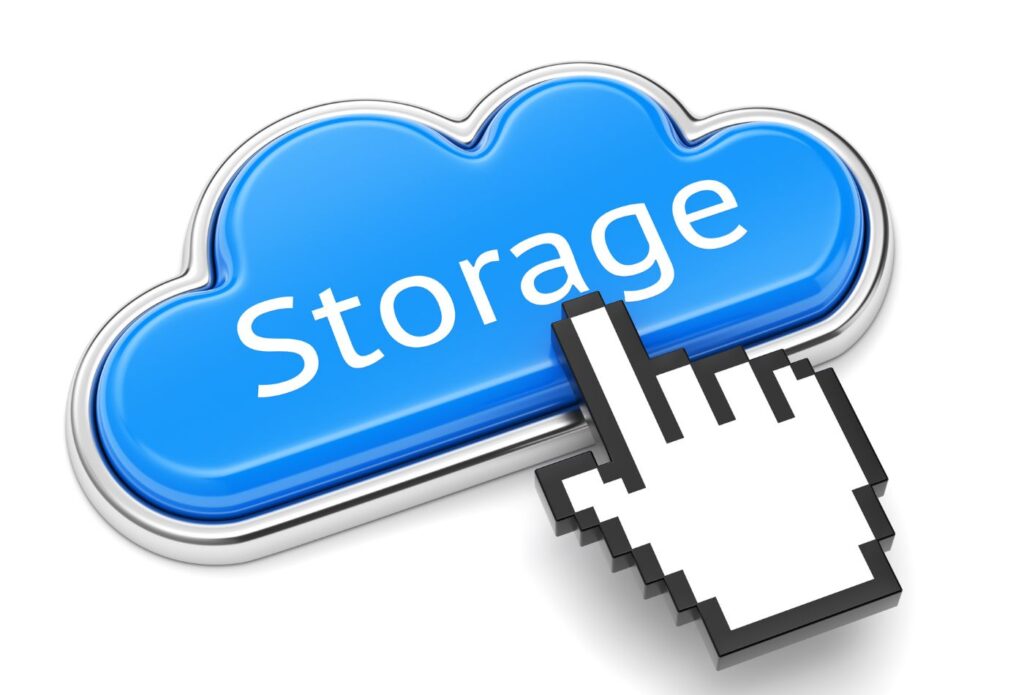Cloud storage has revolutionized the way we store, manage, and share our data. Over the years, it has become an essential tool for businesses, organizations, and individuals alike, offering convenience, flexibility, and remote access. However, with the increasing amount of sensitive data stored in the cloud, security has become a critical consideration when selecting a cloud storage provider.
In 2025, choosing a secure cloud storage provider is not just about having a reliable backup solution; it is about ensuring that your data is protected against threats, breaches, and loss. As cyber threats evolve, cloud storage providers must offer robust security measures, advanced encryption, compliance with regulations, and transparent privacy policies. But with so many options available, how do you decide which one is best suited to your needs?
This blog post will guide you through the key considerations for selecting a secure cloud storage provider in 2025. We’ll explore the essential security features to look for, current trends in cloud storage security, and tips on evaluating a provider’s security posture.
1. Understand Your Security Needs
Before diving into the technical details, it’s important to assess your own security needs. Security requirements can vary significantly based on the type of data you store, the industry you operate in, and whether you are an individual, small business, or large enterprise.
- Personal Data: If you’re using cloud storage for personal use, you likely store documents, photos, videos, and other media files. While security is important, your needs may not be as strict as those of a business.
- Business Data: For small and medium-sized businesses (SMBs) and enterprises, the security requirements are more complex. Businesses store sensitive customer data, financial records, intellectual property, and other confidential information that requires extra protection. Compliance with privacy regulations (such as GDPR, HIPAA, etc.) is often mandatory.
- Industry-Specific Needs: Industries like healthcare, finance, and legal require the highest levels of security. If your business deals with personal health information (PHI), financial records, or legal documents, you’ll need a provider that complies with specific industry standards.
Once you understand your unique security needs, you can begin looking for a cloud storage provider that offers the necessary features.
2. Evaluate Encryption Methods
One of the most important aspects of cloud storage security is encryption. Encryption ensures that your data is protected from unauthorized access, even if it is intercepted during transmission or accessed by a malicious actor.
Types of Encryption:
- Data-at-Rest Encryption: This type of encryption protects your data when it is stored on the cloud provider’s servers. Look for a provider that uses strong encryption algorithms such as AES-256 (Advanced Encryption Standard) to encrypt files stored in the cloud.
- Data-in-Transit Encryption: This type of encryption protects your data while it is being transferred between your device and the cloud provider’s servers. The industry standard for securing data-in-transit is SSL/TLS (Secure Socket Layer/Transport Layer Security). Ensure the provider uses these protocols to protect your data during upload and download.
- End-to-End Encryption (E2EE): This is an added layer of security in which only the user has the encryption keys to decrypt the data. Even the cloud storage provider cannot access the data. E2EE is critical if you are storing highly sensitive information and want complete control over your data’s privacy. Look for a provider that offers E2EE if privacy is a top concern.
Some providers may offer client-side encryption, where data is encrypted before it even reaches the cloud storage servers. This type of encryption provides an additional level of security, as the service provider cannot access your unencrypted data.
3. Compliance and Certifications
In today’s data-driven world, many industries are governed by strict data protection regulations and standards. A cloud storage provider that is compliant with these regulations ensures that your data is handled in a manner that meets legal and industry-specific requirements.
Common Compliance Standards:
- GDPR (General Data Protection Regulation): This regulation governs the handling of personal data for individuals within the European Union. If your business operates in the EU or deals with EU customers, you must ensure the cloud provider complies with GDPR.
- HIPAA (Health Insurance Portability and Accountability Act): This regulation applies to healthcare organizations in the United States. If you store patient data, you need a provider that complies with HIPAA’s security and privacy rules.
- SOC 2 (System and Organization Controls 2): This certification demonstrates that the provider’s systems are secure and that they have adequate policies in place to protect data. SOC 2 is especially important for businesses that store sensitive customer or financial data.
- ISO/IEC 27001: This international standard specifies the requirements for an information security management system (ISMS). ISO 27001 certification ensures that a cloud storage provider follows rigorous security practices to protect data.
- PCI DSS (Payment Card Industry Data Security Standard): If your business handles payment card data, look for a provider that complies with PCI DSS.
Choosing a provider that holds relevant certifications demonstrates a commitment to security and compliance, which is crucial for maintaining trust with your customers and protecting sensitive data.
4. Backup and Redundancy
Data loss is a significant concern for any organization or individual. While cloud storage offers reliable data management, it’s essential to ensure that the provider has a robust backup system in place. Look for the following features:
- Automated Backups: Ensure that the provider offers automatic backup options for your data. This feature ensures that your data is consistently and regularly backed up without manual intervention.
- Redundancy: A secure cloud storage provider will maintain data redundancy across multiple data centers or geographic locations. Redundancy ensures that your data is replicated across multiple servers, so even if one server fails, your data remains safe and accessible.
- Disaster Recovery Plans: The provider should have a disaster recovery plan in place. This plan outlines how they would recover your data in the event of a system failure or data breach.
These features ensure that your data is protected from loss due to accidental deletion, hardware failure, or even natural disasters.
5. Access Control and Authentication
Controlling who can access your data is crucial for maintaining its security. A good cloud storage provider should offer robust access control mechanisms to prevent unauthorized access.
Key Features to Look For:
- Multi-Factor Authentication (MFA): MFA adds an additional layer of security by requiring users to provide two or more forms of identification (such as a password and a fingerprint or a one-time code sent to their phone) before accessing the data.
- Granular Permissions: For businesses and teams, it’s important to control who has access to specific files and folders. Look for providers that offer granular permission settings, allowing you to set read-only, read-write, or admin-level permissions for different users.
- Audit Logs: A good cloud storage provider should offer detailed audit logs that track who accessed your data, when, and what actions they took. This transparency helps you monitor for suspicious activity and provides an additional layer of accountability.
With these features, you can ensure that only authorized users have access to sensitive data.
6. Security in the Cloud’s Physical Infrastructure
While cloud storage is primarily a digital service, the physical security of the data centers that host your data is equally important. The best providers take steps to secure their physical infrastructure to prevent unauthorized access or physical damage to the servers.
Key Aspects to Consider:
- Data Center Security: Look for providers that use highly secure data centers with physical security controls such as biometric access, 24/7 surveillance, and restricted access to servers.
- Geographic Location of Data Centers: Some countries have stronger data protection laws than others. Make sure the provider stores your data in countries with strong privacy protections. You should also be aware of whether your data is being stored in a single region or replicated across multiple regions.
By choosing a provider with secure physical infrastructure, you ensure that your data is protected from potential physical threats, such as break-ins or natural disasters.
7. Transparency and Privacy Policy
When selecting a cloud storage provider, it is important to review their privacy policy and terms of service. A transparent provider will clearly outline how they handle your data, how long they retain it, and whether they share it with third parties.
What to Look For:
- No Data Sharing: Make sure the provider does not sell or share your data with third parties without your consent.
- Clear Data Retention Policy: The provider should specify how long they retain your data after you delete it or close your account. Some providers may continue to store your data for a period of time for backup or compliance purposes.
- Incident Response Plan: The provider should have a clear response plan in case of a security breach. This plan should outline how they will notify users, what actions they will take to mitigate the breach, and how they will prevent future incidents.
Being able to trust your provider is essential, so ensure their privacy policy aligns with your security and privacy needs.
8. Customer Support
Even the most secure cloud storage providers can run into technical issues or require assistance with security-related questions. A reliable, responsive support team can help you resolve any issues quickly and ensure your data remains secure.
Look for providers that offer:
- 24/7 Customer Support: Whether through live chat, phone, or email, having access to support at all times can help you address security concerns promptly.
- Dedicated Account Manager: For businesses, having a dedicated account manager can provide added peace of mind when it comes to managing security and compliance issues.
- Security-focused Support: Some cloud storage providers offer specialized support for security-related questions, helping you navigate complex encryption, compliance, and backup issues.
9. Cost and Service Plans
While security is a top priority, cost is always a consideration. Cloud storage providers offer various pricing models, ranging from pay-as-you-go plans to subscription-based models.
When evaluating cost, consider:
- Scalability: Does the provider offer flexible plans that can grow with your data storage needs? Ensure that you can easily upgrade or downgrade your plan based on usage.
- Storage Limits: Compare the amount of storage offered in different plans to ensure that you get enough space for your needs.
- Pricing Transparency: Look for providers that are upfront about pricing, including any potential hidden fees for additional storage, bandwidth, or services.
While security is paramount, it’s essential to choose a provider whose pricing aligns with your budget and offers the features you need.
10. User Reviews and Reputation
Finally, it’s a good idea to check the provider’s reputation and user reviews before making a decision. Look for reviews that focus on security, reliability, and customer service.
Some good places to check:
- Tech review sites: Websites like CNET, TechRadar, or PCMag often review and rank cloud storage providers based on security features and overall performance.
- User forums and social media: Real-world user experiences can offer valuable insights into how a provider handles security incidents or data breaches.
- Security certifications: Make sure the provider has a solid reputation in the industry for adhering to security standards and best practices.
Conclusion
In 2025, securing your data in the cloud is more important than ever. With cyber threats continuing to evolve, it is essential to choose a cloud storage provider that prioritizes security, privacy, and compliance. By evaluating encryption methods, compliance standards, backup and redundancy measures, access control, and other security features, you can make an informed decision and ensure that your data is safe and secure.
Remember, the best provider for you will depend on your specific needs—whether you’re an individual, a small business, or a large enterprise. By doing your research and considering the factors outlined in this blog post, you’ll be well-equipped to choose the best cloud storage provider for your data security in 2025.









